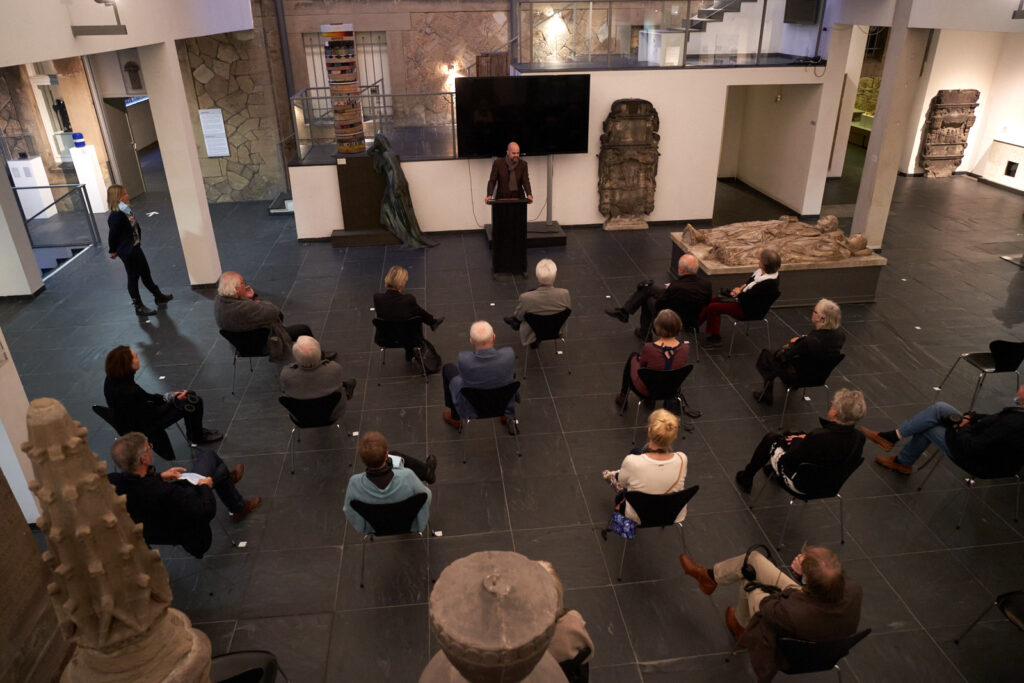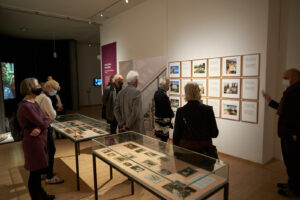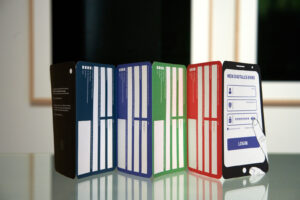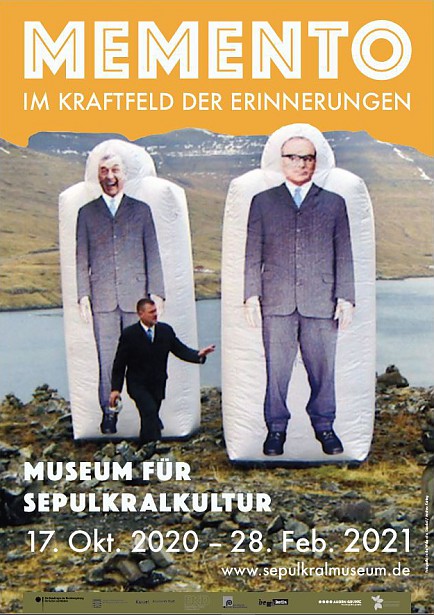An exhibition on individual forms of remembering and commemoration
Museum of Sepulchral Culture (Kassel, Germany)
17. October 2020 – 28. February 2021
Lorenz Widmaier contributes five positions of digital forms of commemoration to the exhibition MEMENTO at the Museum of Sepulchral Culture. The contributions are insights into the research of Lorenz Widmaier, who explores the meaning of digital legacies, and participatory practices of mourning and remembrance. The participatory design of the exhibition thus makes his research visible to the public.

Exhibition opening – 16 October 2020
The first contribution, GHOSTS ON GOOGLE MAPS, is a video work by Lorenz Widmaier based on tweets, in which bereaved people show with screenshots and short videos how they found their deceased on Google Maps (Street View). The work shows that the growing amount of data worldwide is not as sober as their data centres, but is interwoven with stories and memories that often remain hidden only to be rediscovered. The easy retrieval of the data, detached from time and place, poses new questions about privacy and explains the ghostly appearance of the deceased in the videos.
The second contribution, IN MEMORIAM TO FRANCESCA FELDMANN, shows, on the one hand, a memorial book that a father created for his deceased daughter. On the other hand, a film is shown which the father created based on this book and uploaded it to YouTube. He says: “For me, the internet has become something of which I say, okay, even if I’m gone, there’s still something left for eternity.” The work shows how digital technologies and the wealth of digital material such as photographs, texts, videos, and sound recordings enable mourners to deal with memories creatively.
The third contribution, NACHRICHTEN AN DEN SOHN (Messages to the Son), shows a mother’s exchange with her deceased son before and after his death via WhatsApp. She printed out screenshots of the conversation and inserted them into an album that can be seen in the exhibition. WhatsApp has become a crucial medium of remembrance for the bereaved as it allows them to re-experience everyday life with the deceased. Short texts, smileys, photos, voice messages, and videos are essential and vital memories that would not exist without digital media.

DEAR PHOTOGRAPH – exhibition view
The fourth contribution, DEAR PHOTOGRAPH, presents a participatory memory project initiated by Taylor Jones. The idea is simple: take an old photograph depicting friends or family members, go to the place depicted on the photograph, hold the photo in front of the original background and rephotograph the photo and the place. The exhibition shows a selection of pictures that can be seen online: www.dearphotograph.com or www.instagram.com/dearphotograph/

Booklet MEIN DIGITALES ERBE
The fifth contribution is a booklet to take home for the museum visitors. In this booklet, the visitors can not only write down their passwords but also their wishes about what should happen to their digital data after they die. The book is intended as an encouragement to talk to relatives about the digital legacy and make arrangements while possible.
Lorenz Widmaier is a PhD Candidate at the Cyprus University of Technology and his research interests are memory practices, death and mourning, photography, and visual sociology. He can be reached via lj.widmaier@edu.cut.ac.cy, and his project website is https://www.memoryanddeath.com. Follow him on Twitter: @lorenzwidmaier.


